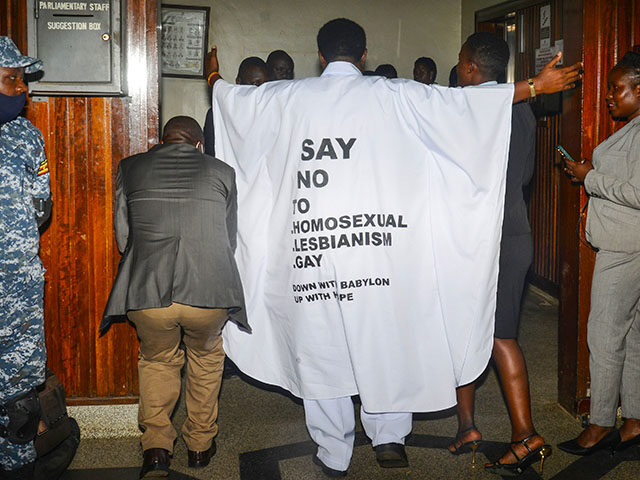Modern day Islam is just as oppressive and dangerous as was 8th century Islam. That’s because culturally, Islam still enforces the same tenets they did 1,200 years ago. What are some of those tenets, practices, and ways of life? Islam enforces edicts against homosexuality to the point of executing homosexuals. As for women, of the ten worst countries for women’s rights, seven of them are Muslim. The Quran clearly states that women are subordinate to men, and men may beat their wives (Quran 4:34). With Islam, there’s a fine line between oppressing women and enslaving them. Islam practices female genital mutilation, a barbaric practice (look it up and be disgusted). Other realities for women in Islamic countries include: women must be escorted in public, largely because it’s too dangerous for them to walk alone (rape and assaults are common); women must cover their bodies from head to foot; and very few education opportunities which result in limited employment opportunities.
Uganda to Borrow $150 Million from China After World Bank Halts Funding over ‘Anti-Homosexuality Act’

Uganda’s Finance Ministry said on Monday that it plans to borrow $150 million from the Export-Import Bank of China (ExIm) to develop the country’s Internet infrastructure.
Uganda would normally fund such projects through the World Bank, its primary development lender, but the World Bank halted loans to Uganda after President Yoweri Museveni signed the Anti-Homosexuality Act in May.
The World Bank suspended funding for Uganda in August, pending “additional measures” that could soften the Anti-Homosexuality Act.
The Ugandan law created a new category of crimes called “aggravated homosexuality” that merit severe punishments, originally including the death penalty, although Museveni purportedly loosened the death sentences slightly before signing the bill into law. He did not loosen them very much, as there is a capital case for aggravated homosexuality currently before Ugandan courts.
Homosexual conduct was already nominally illegal in Uganda before the new law. “Aggravated homosexuality” broadly means same-sex relations where one of the parties does not give full consent.
Many Western governments were appalled at the Ugandan law, including the Biden administration, and threatened sanctions unless it was repealed. Museveni remained defiant. When the World Bank suspended funding, the authoritarian Marxist president accused it of using financial pressure to make his people abandon their values.
“I want to inform everybody, starting with Ugandans, that Uganda will develop with or without loans,” Museveni declared in August.
“With discipline, patriotism and combating corruption, we shall thrive because our agriculture is there, our industries are growing and our services sector is expanding,” he vowed.
“It is therefore unfortunate that the World Bank and other actors dare to want to coerce us into abandoning our faith, culture, principles and sovereignty, using money. They really underestimate all Africans,” he said.
In April, Museveni urged other African nations to join Uganda in resisting “the promotion of homosexuality,” which he described as “a big threat and danger to the procreation of the human race.”
“Africa should provide the lead to save the world from this degeneration and decadence, which is really very dangerous for humanity,” he said.
Monday’s announcement suggests Uganda is relying more heavily on China for its financial needs. In addition to the Internet funding, Uganda is negotiating with China’s ExIm and SINOSURE credit agency, plus Saudi Arabia and a smattering of African banks, to refinance a $5 billion oil export pipeline.
No comments:
Post a Comment